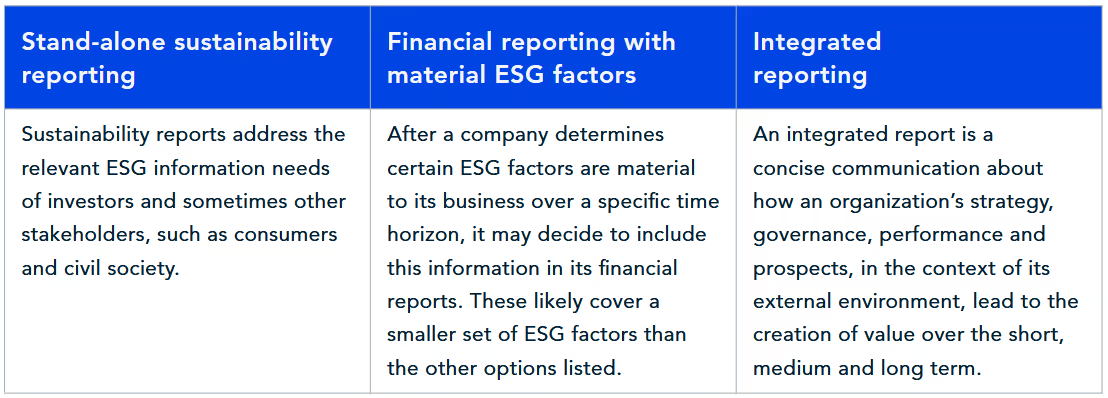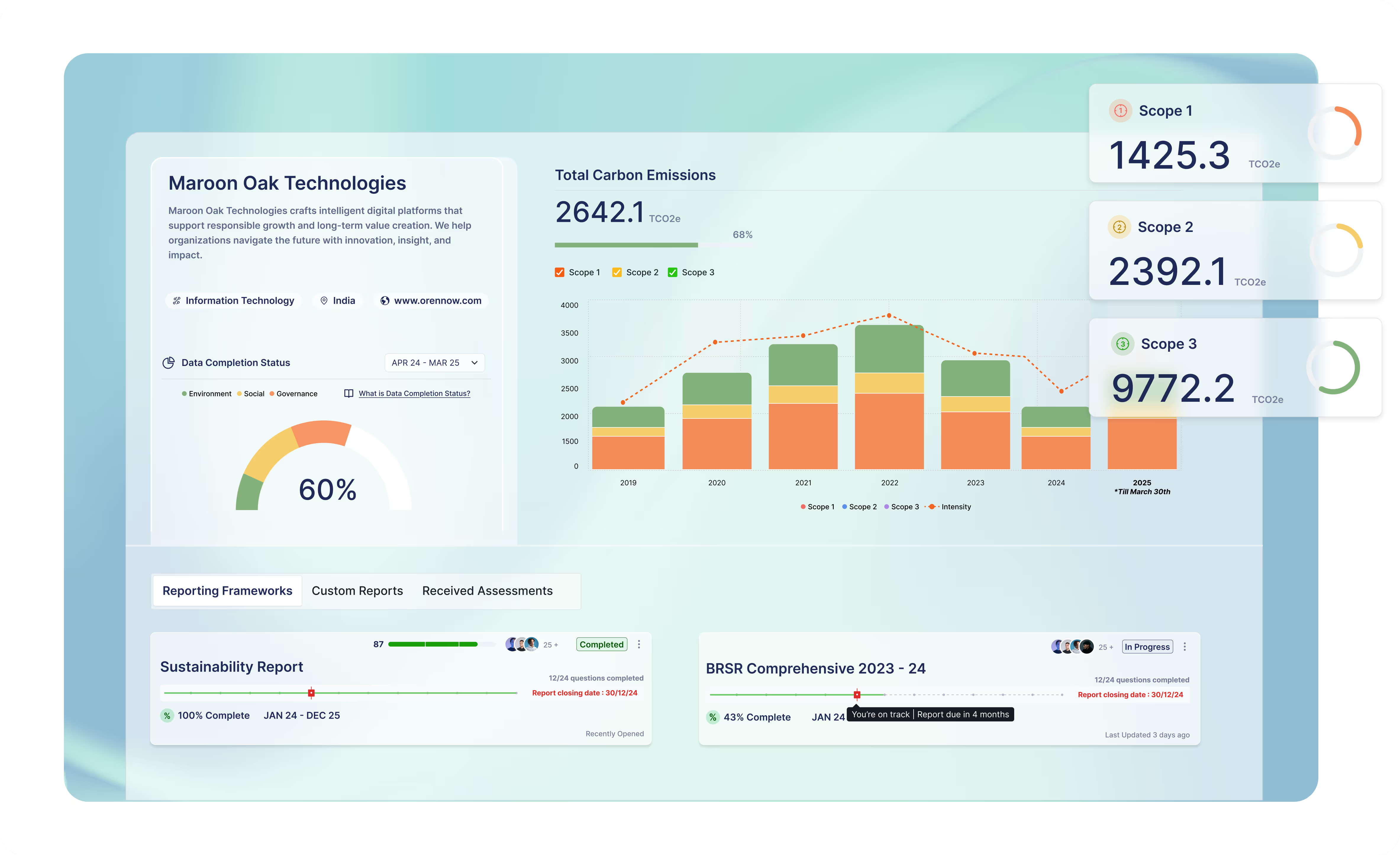Mastering ESG Reporting in Saudi Arabia: A Strategic Guide for Listed Companies

The global financial landscape is undergoing a major transformation, with Environmental, Social, and Governance (ESG) considerations becoming a priority for investors, regulators, and stakeholders. In Saudi Arabia, Vision 2030 has placed sustainability at the core of the nation’s economic development, making ESG disclosure an essential component of corporate strategy.
The Saudi Exchange (formerly Tadawul) has taken proactive steps to promote ESG disclosure, ensuring that listed companies align with global sustainability standards. This guide aims to help Saudi-listed companies understand, implement, and enhance their ESG disclosure practices effectively.
Why ESG Disclosure is Essential for Saudi Companies
1. Growing Investor Interest & Capital Market Expansion
Saudi Arabia’s inclusion in major global indices has led to a significant increase in foreign investment. Qualified Foreign Investors (QFIs) now demand transparency in ESG-related risks and opportunities, making ESG disclosure a competitive necessity.
2. Link Between ESG & Financial Performance
Studies have shown that strong ESG performance enhances financial returns, improves risk management, and reduces the cost of capital. Sustainable companies are more resilient to market disruptions and regulatory changes.
3. Alignment with Vision 2030 & UN SDGs
Saudi Arabia’s Vision 2030 prioritises sustainability, aiming to reduce carbon emissions, enhance corporate governance, and promote social responsibility. ESG disclosure aligns with the United Nations Sustainable Development Goals (SDGs), ensuring long-term growth and global integration.
4. Risk Management & Corporate Reputation
Transparent ESG reporting helps companies identify and mitigate risks, improve regulatory compliance, and strengthen relationships with stakeholders, including investors, customers, and employees.
Key ESG Factors and Their Business Implications
1. Environmental Factors
- Climate Change & Carbon Footprint: Companies must disclose their greenhouse gas (GHG) emissions and climate resilience strategies.
- Resource Management: Efficient use of water, energy, and raw materials contributes to cost savings and regulatory compliance.
- Waste & Pollution Control: Reducing waste and adopting circular economy principles enhances environmental stewardship.
- Renewable Energy Adoption: Transitioning to cleaner energy sources aligns with Saudi Arabia’s sustainability goals.
2. Social Factors
- Human Capital & Labor Practices: Employee well-being, diversity, and fair labor practices contribute to a strong corporate culture.
- Community Engagement: Companies should engage in social initiatives supporting education, healthcare, and economic empowerment.
- Customer Data Privacy & Security: Protection against cyber threats ensures trust and regulatory compliance.
- Supply Chain Responsibility: Ethical sourcing and labor rights compliance enhance business resilience and stakeholder confidence.
3. Governance Factors
- Board Composition & Leadership: Strong governance structures foster accountability and transparency.
- Business Ethics & Compliance: Anti-corruption policies, whistleblower mechanisms, and financial disclosures build investor trust.
- Shareholder Rights & Transparency: Fair policies on executive compensation, dividends, and decision-making enhance corporate governance.
- Regulatory Adherence: Aligning with Capital Market Authority (CMA) regulations strengthens corporate integrity and market confidence.
Steps to Implement ESG Reporting for Saudi Listed Companies
Step 1: Understand ESG Materiality & Set Clear Objectives
Understanding materiality is the foundation of effective ESG reporting. Companies need to determine which ESG factors are most relevant to their industry and stakeholders. This involves assessing environmental impact, workforce policies, governance structures, and long-term business objectives to align ESG initiatives with corporate strategy.
Key Actions:
- Conduct a materiality assessment: Identify and prioritise ESG factors that significantly impact business performance and stakeholder decisions.
- Engage stakeholders: Collect insights from investors, regulators, employees, and customers to understand their sustainability expectations.
- Assess regulatory and industry trends: Align with global ESG standards and local requirements such as the Saudi Exchange ESG Guidelines.
- Define clear ESG objectives: Establish measurable sustainability goals that align with Vision 2030 and the United Nations Sustainable Development Goals (SDGs).
By setting clear ESG objectives, companies can ensure that their reporting efforts are strategic, relevant, and actionable, rather than simply a compliance exercise.
Step 2: Engage Stakeholders & Establish Governance Structures
ESG success relies on strong leadership commitment and cross-functional collaboration. Effective governance ensures that ESG policies are embedded into corporate culture and decision-making processes.
Key Actions:
- Establish an ESG governance framework: Define roles and responsibilities for sustainability oversight, including assigning ESG leadership within the board and management teams.
- Create an ESG committee: Include representatives from finance, operations, legal, investor relations, and sustainability teams to drive ESG strategy.
- Engage with investors and regulators: Maintain transparent communication with Qualified Foreign Investors (QFIs) and regulatory bodies to understand evolving ESG expectations.
- Integrate ESG into corporate policies: Align sustainability commitments with risk management, ethics, and compliance frameworks.
A well-structured governance system strengthens accountability and helps organisations embed ESG into their long-term business strategy.
Step 3: Select an ESG Reporting Framework
Choosing the right ESG reporting framework ensures that companies follow globally recognised best practices while meeting regional requirements. Saudi-listed companies should select a framework based on their industry type, investor expectations, and reporting objectives.
Popular ESG Reporting Frameworks:
- Global Reporting Initiative (GRI): A widely used framework providing detailed sustainability disclosure standards for companies of all sizes and industries.
- Sustainability Accounting Standards Board (SASB): Focuses on industry-specific ESG factors that are financially material to business performance.
- Task Force on Climate-related Financial Disclosures (TCFD): Provides guidance on reporting climate-related risks and opportunities.
- United Nations Sustainable Development Goals (SDGs): Helps companies align ESG initiatives with global sustainability targets.
- Saudi Exchange ESG Disclosure Guidelines: A tailored framework ensuring alignment with Saudi Arabia’s regulatory and market-specific ESG expectations.
Many companies use a combination of frameworks to provide a comprehensive and credible ESG report that meets diverse stakeholder needs.
Step 4: Collect, Measure, and Report ESG Data
Accurate and data-driven ESG reporting is essential for credibility, transparency, and continuous improvement. Companies should implement structured processes to collect, analyse, and benchmark sustainability performance.
Key Actions:
- Identify Key Performance Indicators (KPIs): Define measurable metrics for environmental (carbon emissions, energy usage), social (workforce diversity, labor conditions), and governance (board composition, ethics policies) factors.
- Leverage technology: Use data analytics, AI, and digital dashboards to streamline ESG data collection and analysis.
- Benchmark performance: Compare ESG metrics with industry peers, international benchmarks, and market leaders.
- Ensure third-party verification: Enhance credibility by seeking independent audits and assurance for ESG disclosures.
Reliable ESG data empowers companies to track progress, address gaps, and showcase improvements to investors and stakeholders.
Step 5: Communicate ESG Progress & Improve Disclosure Continuously
Transparent and consistent communication of ESG performance enhances stakeholder trust and long-term business resilience. Companies should ensure that ESG reports are accessible, comprehensive, and regularly updated.
Key Actions:
- Publish annual ESG reports: Issue standalone sustainability reports or integrate ESG disclosures into annual financial statements.
- Ensure bilingual reporting: Provide ESG reports in both Arabic and English to reach a wider investor audience.
- Engage stakeholders through multiple channels: Utilise press releases, investor presentations, sustainability websites, and social media to share ESG achievements.
- Monitor ESG trends: Continuously track global ESG standards, regulatory updates, and emerging risks to refine reporting practices.
- Seek external assurance: Independent third-party audits enhance credibility and reduce concerns over greenwashing.
By iterating and improving ESG disclosures, companies can strengthen their market position, attract long-term investors, and drive sustainable value creation.
ESG Reporting Options:

Saudi Exchange’s Role in ESG Advancement
The Saudi Exchange plays a crucial role in supporting issuers on their ESG journey by:
- Providing ESG disclosure guidelines to ensure compliance with global best practices.
- Facilitating ESG index inclusions to attract responsible investors.
- Conducting ESG training programs for corporate leaders.
- Collaborating with rating agencies to enhance ESG data quality and accessibility.
Companies listed on the Saudi Exchange can leverage these resources to strengthen their sustainability practices and improve investor confidence.
Conclusion
ESG disclosure has become a strategic necessity for Saudi-listed companies, aligning with Vision 2030 and global investor expectations. By integrating ESG into corporate strategy, businesses can enhance financial performance, strengthen stakeholder trust, and ensure regulatory compliance. A well-structured approach—assessing material ESG factors, engaging stakeholders, and adopting global reporting frameworks—enables companies to navigate sustainability challenges effectively.
As Saudi Arabia accelerates its economic transformation, organisations that prioritise ESG transparency will gain a competitive advantage in attracting investments and building long-term resilience. With the Saudi Exchange providing essential ESG guidelines and support, now is the time for companies to act decisively, embrace sustainability, and position themselves as leaders in the evolving global market.
Latest Blog Posts
Dive into our blog for insights on making your organization more sustainable.
Sustainability Simplified
Wherever you are in your sustainability journey, we help you advance with confidence.
Schedule a Call



.avif)

